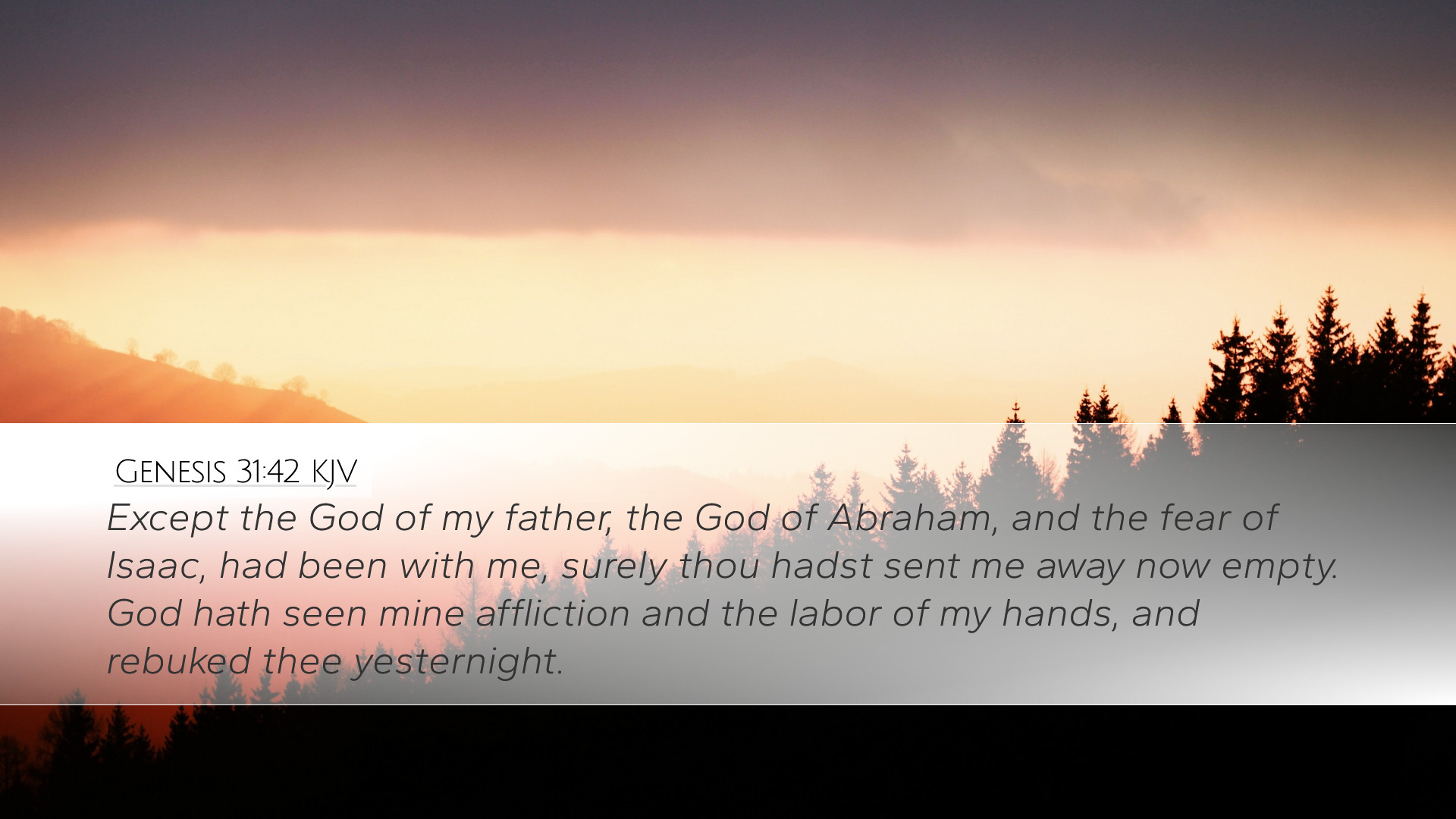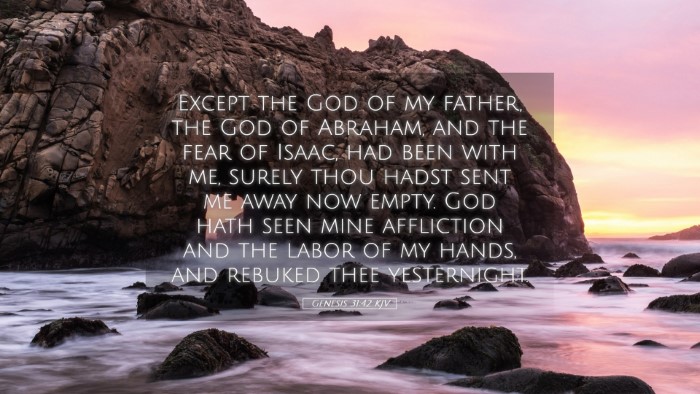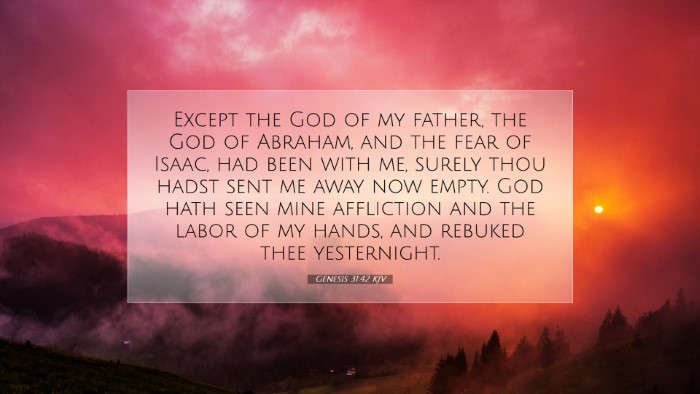Commentary on Genesis 31:42
Text of Genesis 31:42: "If the God of my father, the God of Abraham, and the Fear of Isaac, had not been with me, surely now thou wouldst have sent me away empty. God hath seen mine affliction and the labour of my hands, and rebuked thee yesternight."
Introduction
This verse is a poignant expression of Jacob's reliance on God amidst the trials he faced in his relationships and endeavors. It encapsulates his acknowledgment of divine providence and the covenantal relationship he bears with the God of his forefathers. The various public domain commentaries shed light on the text, revealing layers of theological significance, pastoral lessons, and historical context which are invaluable for theologians, pastors, and students of Scripture.
The Context of Jacob's Departure
Jacob's remark is situated in a critical moment of his life. After years of serving his uncle Laban, Jacob is finally fleeing with his family and possessions. Laban had changed Jacob's wages multiple times, demonstrating a pattern of deceit and manipulation.
Matthew Henry notes that Jacob's departure was marked by God's guidance, arguing that it was God's providence that ultimately led Jacob to leave. Jacob's fear of Laban's retribution is underscored by his reflection on God’s active presence in his life.
Identifying God as His Protector
In this verse, Jacob attributes his safe departure to the intervention of God, referring specifically to “the God of my father, the God of Abraham, and the Fear of Isaac.” This triadic reference highlights the continuity of God's faithfulness across generations.
Albert Barnes emphasizes that Jacob is invoking the covenant established with Abraham and affirmed with Isaac. Jacob's lineage is steeped in God’s promises, fostering a deep sense of loyalty and reliance on God's protection.
The Significance of “Fear of Isaac”
The term "Fear of Isaac" plays a central role in Jacob's declaration. This suggests that Isaac's reverence for God was not merely personal piety but a distinctive attribute that marked the divine relationship within the family.
Adam Clarke explains that reverent fear implies a recognition of God's holiness and justice. Jacob seems to invoke this concept to affirm that the same God who was with Isaac is also with him through challenges.
Recognizing God's Providence
Jacob acknowledges divine assistance by stating, "God hath seen mine affliction and the labour of my hands." This assertion reflects the notion that God is not distant, but intimately aware of human struggles.
Henry comments on this awareness as key to understanding God's character. In Jacob’s labor, there is a sense of both toil and trust. He did not come away empty-handed because God had been intimately engaged in his life, witnessing his hardships and labor.
The Divine Rebuke of Laban
Jacob’s assertion that God “rebuked thee yesternight” indicates a specific moment of intervention where God warned Laban against harming Jacob. This serves to illustrate God's protective action in history.
Barnes points out that the account of Laban's dream the night before is pivotal. It shows that God directly intervenes in human governance and interposes on behalf of His people. Jacob's confidence stems from knowing that God is actively working to safeguard His covenant community.
Theological Implications
This verse reinforces the theological concept of divine providence in the lives of believers. Jacob's situation reflects a broader narrative of reliance on God amidst trials. The acknowledgment that God sees and cares for His people serves as a source of comfort and assurance.
Clarke highlights that such acknowledgment is not merely a personal testament but is meant to inspire authenticity and faith in communal experiences amongst believers, reminding them of the historic acts of God throughout scripture.
Pastoral Insights
For modern pastors and leaders, Jacob's reliance on God is a profound reminder to seek divine assistance in their ministries. The implication that God's presence provides reassurance during times of difficulty is crucial when guiding congregations.
Application for Ministry: Encouraging congregations to recognize God's involvement in their lives helps cultivate a healthy reliance on Him in personal and communal challenges.
Conclusion
Genesis 31:42 serves as a powerful reminder of God's providential care and the importance of recognizing His involvement in our lives. Jacob's invocation of the God of Abraham serves to anchor our faith in the history of God's dealings with His people.
In essence, this commentary encourages reflection on the ways God has actively engaged with individuals throughout biblical history, providing assurance that He continues to see, care for, and intervene in the lives of those who are called by His name.


